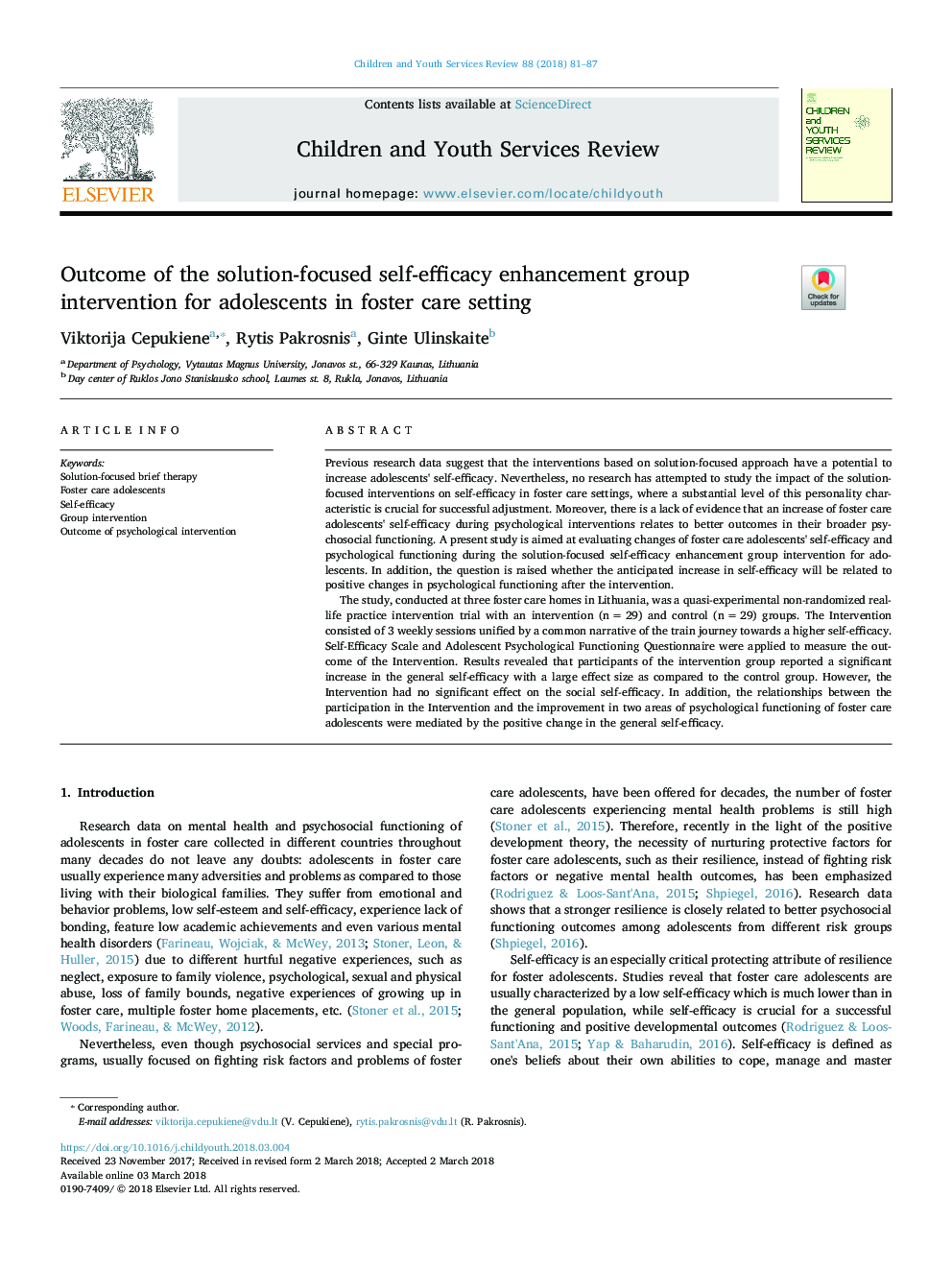| Article ID | Journal | Published Year | Pages | File Type |
|---|---|---|---|---|
| 6833136 | Children and Youth Services Review | 2018 | 7 Pages |
Abstract
The study, conducted at three foster care homes in Lithuania, was a quasi-experimental non-randomized real-life practice intervention trial with an intervention (nâ¯=â¯29) and control (nâ¯=â¯29) groups. The Intervention consisted of 3 weekly sessions unified by a common narrative of the train journey towards a higher self-efficacy. Self-Efficacy Scale and Adolescent Psychological Functioning Questionnaire were applied to measure the outcome of the Intervention. Results revealed that participants of the intervention group reported a significant increase in the general self-efficacy with a large effect size as compared to the control group. However, the Intervention had no significant effect on the social self-efficacy. In addition, the relationships between the participation in the Intervention and the improvement in two areas of psychological functioning of foster care adolescents were mediated by the positive change in the general self-efficacy.
Keywords
Related Topics
Health Sciences
Medicine and Dentistry
Perinatology, Pediatrics and Child Health
Authors
Viktorija Cepukiene, Rytis Pakrosnis, Ginte Ulinskaite,
